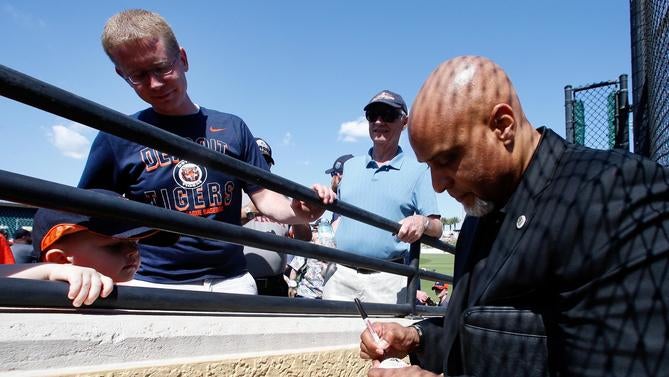Baseball's current collective bargaining agreement expires on Dec. 1, and according to previous reports, the owners are prepared to lock the players out. I don't think it'll get to that point. Neither side wants a work stoppage after 21 years of labor peace, because there is way too much money to be lost.
One of the biggest remaining issues is draft pick compensation for free agents. The MLBPA wants it gone because it's hurt the market of too many players. Ian Desmond, Nelson Cruz and Dexter Fowler are among those who had to settle for smaller than expected contracts due to draft pick compensation in recent years.
According to Jon Heyman of FanRag Sports, the owners are prepared to eliminate the draft pick compensation system in the next CBA. From Heyman:
MLB bigs, mindful of the huge benefit won by management with the establishment of the qualifying offer system in free agency, have offered to eliminate direct compensation in the form of a draft pick lost for signing top free agents. That would, in effect, take the legs out of an onerous qualifying-offer rule that a players' source said has cost players as much as $1 billion in compensation under the current five-year agreement, maybe even $1.5 billion. Even management people concede the cost to players has been very high; yet, the qualifying-offer system has been offered back, at a price.
It's been reported that draft pick compensation would not go away entirely with the new CBA. Teams would still gain a supplemental first-round pick for losing a qualified free agent. The signing team would no longer have to surrender their highest unprotected pick, however.
Clubs still getting compensated for losing top free agents but get to keep their draft picks when they sign them? It seems like the best possible solution at this point.
Of course, MLB is not going to eliminate draft pick compensation without getting something in return. Heyman and others have reported that something is an international draft, something the MLBPA strongly opposes. Several big name Latin American players, including Cruz and Edwin Encarnacion, have spoken out publicly against an international draft.

In a nutshell, an international draft would save the owners quite a bit of money by limiting the earning potential of amateur players. Rather than allow them to negotiate with any team as a free agent, they'd only be able to negotiate with the team that drafts them. The owners would save millions over the course of the next CBA.
There's concern an international draft may push top international free agents to other sports, such as soccer and basketball, because their earning potential as baseball players will take a hit. The talent pool in Puerto Rico has thinned out considerably since players from the island were added to the draft in 1990.
Losing the best athletes the world has to offer -- even a handful of them a year -- would unquestionably be bad for baseball in the long-term. An international draft will save owners money in the short-term, but could wind up being a negative for the game in the grand scheme of things.
With any luck, the MLBPA will be able to get draft-pick compensation wiped from the next CBA without giving the owners an international draft. That would be best for the players and, ultimately, fans as well.


















